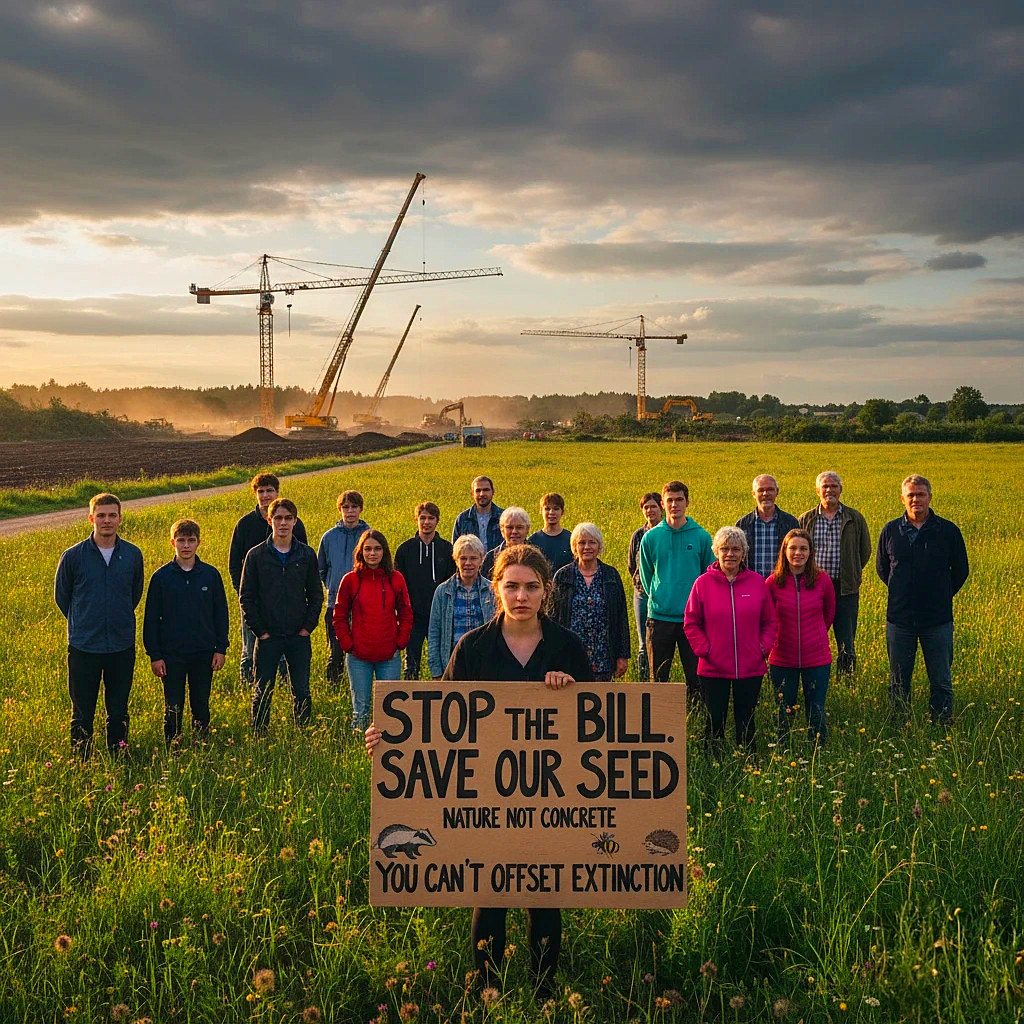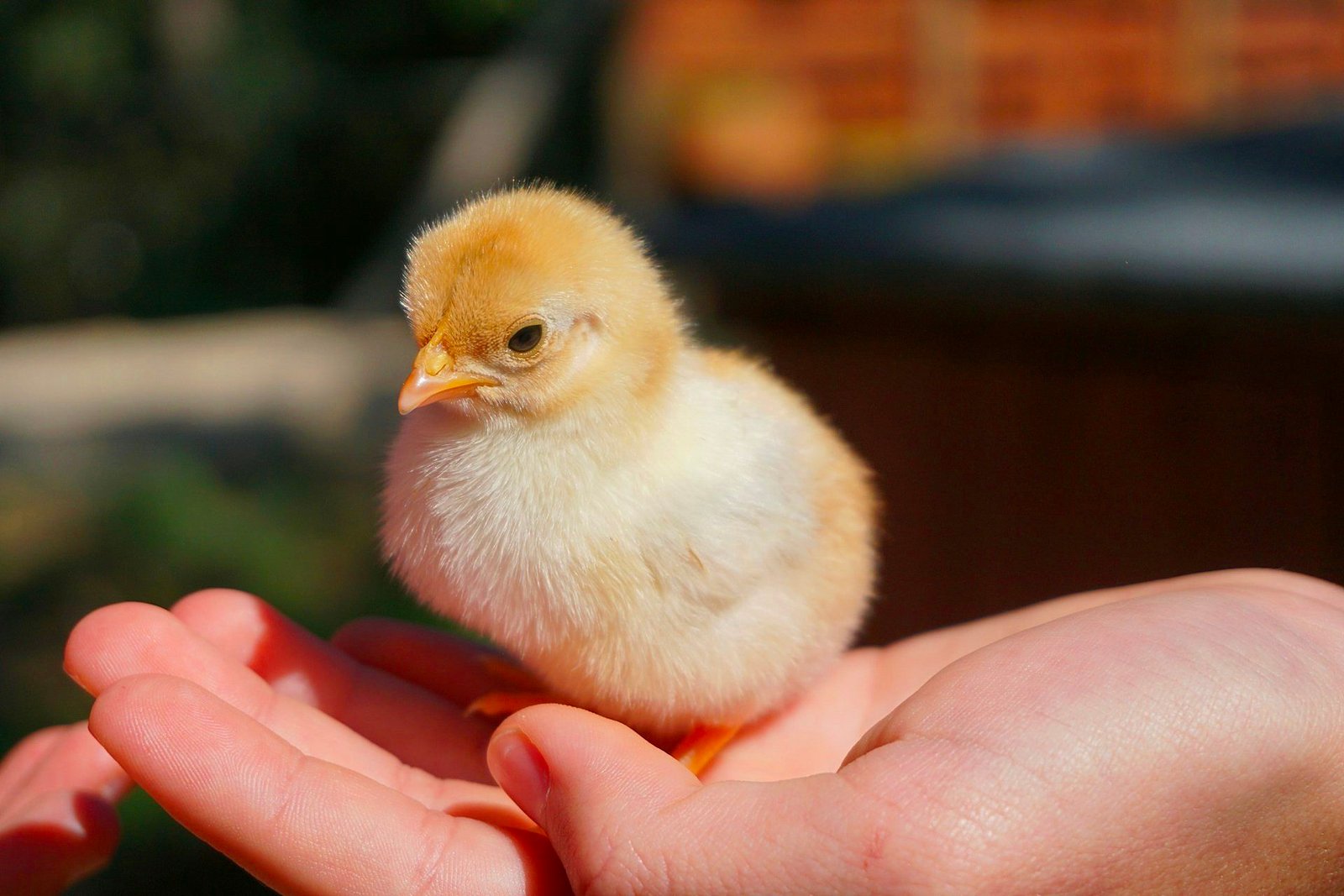The New UK Planning And Infrastructure Bill & The Ramifications
The Caavakushi team have noticed a shocking lack of public awareness regarding the potentially devastating impacts of the new UK Planning and Infrastructure Bill. While we are all acutely aware of the housing crisis and the need for new development, we must ask ourselves: should progress come at the cost of our already beleaguered native wildlife? From our passionate vegan standpoint, the answer must be a resounding no. Yet, this new legislation appears designed to trade irreplaceable habitats for a quick cash payment.
The Threat To Nature (Cash To Trash)
The core of the controversy lies in Part 3 of the Bill, which introduces the new system of Environmental Delivery Plans (EDPs) and the Nature Restoration Fund (NRF), funded by a levy on developers. On the surface, the concept sounds promising: strategic, landscape-scale nature recovery. However, in practice, the Caavakushi team agrees with leading environmental experts who have publicly slammed this mechanism as “cash to trash.”
Under existing environmental laws, like the Habitats Regulations and the Wildlife and Countryside Act 1981, developers were required to implement site-specific mitigation strategies, with a clear hierarchy: first, avoid harm, then mitigate it. The UK Planning and Infrastructure Bill, in its current form, essentially allows developers to bypass this crucial process and pay a one-off levy into the NRF instead. This money is then used for conservation projects elsewhere, often miles away from the initial destruction.
Protected Species Are Not Interchangeable
For those of us who believe in the intrinsic worth of every animal, this is an unacceptable infringement on animal rights. The assumption that damage to one protected habitat can simply be ‘offset’ by funding a new habitat far away ignores decades of established ecological principles.
As conservation groups have pointed out, species are incredibly site-faithful. Protected animals like bats, badgers, hedgehogs, and dormice rely on specific, long-term territories and maternity roosts. Destroying a local badger sett and simply putting money into a fund to build a wetland elsewhere is not conservation; it is local extinction. The Caavakushi team notes that there is no scientific or ecological evidence to suggest this kind of offsetting is effective for rare and protected species. One expert quote confirms this, stating that the Government’s plan “lacks scientific and ecological credibility.”
The UK’s Nature Crisis (We Cannot Afford Regression)
The gravity of this situation cannot be overstated, especially when considering the dire state of British wildlife. The UK is tragically described as “one of the most nature-depleted countries on Earth.” The most recent State of Nature report shows terrifying statistics: the abundance of species studied has declined by an average of 19% since 1970. Furthermore, the distributions of pollinators, such as bees, hoverflies, and moths—essential to our entire food ecosystem—have decreased by an average of 18%.
At a time when the government is legally bound to halt the decline in species abundance by 2030, this Bill threatens to push nature into a freefall. The Office for Environmental Protection itself stated that the Bill would be a “regression” of environmental protections, removing vital safeguards.
Public Rights And Democratic Outrage
Beyond animal rights, this Bill threatens public rights and local democracy. The Bill aims to streamline planning applications for major projects, often by reducing opportunities for local community voices to be heard and by limiting the scope for judicial review—the critical accountability mechanism for correcting legal errors.
The Caavakushi team is outraged that a measure with such profound environmental implications has slipped through Parliament with limited public disclosure. We are not alone: research shows that the concept of “cash to trash” is staunchly opposed across the political spectrum, with 77% of Conservative voters and 79% of Labour voters opposing the idea of allowing developers to avoid ecological mitigation by paying a levy. The vast majority of the public, 70% of voters, say that compensating for local damage somewhere else is unacceptable. Voters place a high, non-negotiable value on protecting nature in their own communities.
Our Call To Action
While the Government has made small concessions, strengthening the language and promising certain safeguards after immense pressure from Peers and NGOs, fundamental flaws remain. The crucial Lords amendments, such as the one restricting the application of Part 3 in sensitive wildlife areas, must be supported by MPs to prevent the NRF from becoming the “Nature Removal Fund.”
We, as a passionate vegan community, must not let this Bill pass silently. We have a shared responsibility to be the voice for those who cannot speak, including the badger, the dormouse, and the irreplaceable ancient woodland. The cost of ‘progress’ cannot be the extinction of our co-inhabitants.
Vegan Resources
- Caavakushi Vegan Food Recipes
- Caavakushi Vegan Drinks Recipes
- Caavakushi Vegan Newsletter & Free 7 Day High-Protein Vegan Meal Plan
- Vegan Stuff Podcast With Caavakushi
- Caavakushi Vegan Search Engine
- Best Vegan Recipe Books
- Best Vegan Wines & Alcohol
- Best Vegan Food & Supplements
Tell Us How You Feel
We want to know how you feel about the site, blog articles, and our recipes. Comment below and let us know your thoughts. Snap a quick picture or video clip of your recreation of our recipes and tag us on social media #Caavakushi #Caavakushirecipe #Caavakushimeal. We can’t wait to see how you added your special touch to our recipes. Help a fellow vegan out by posting your recipes on our vegan forum and make some new plant-based friends. Our podcast has something for everyone, from vegan activists to vegan businesses and plant-based celebrities.
If you like it, help us out by letting us know by leaving a review and 5 stars. Thanks in advance! (really appreciate it.) Oh, and we almost forgot to tell you that we’re giving away our 7-day high-protein vegan meal plan for free for a limited time only when you sign up for our vegan newsletter. Get yours now before it’s too late!



